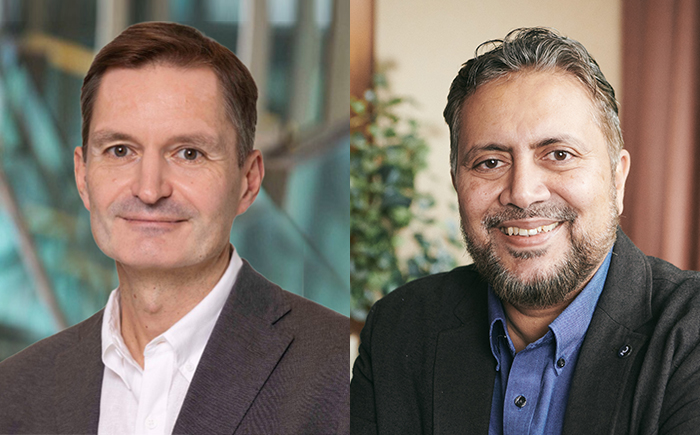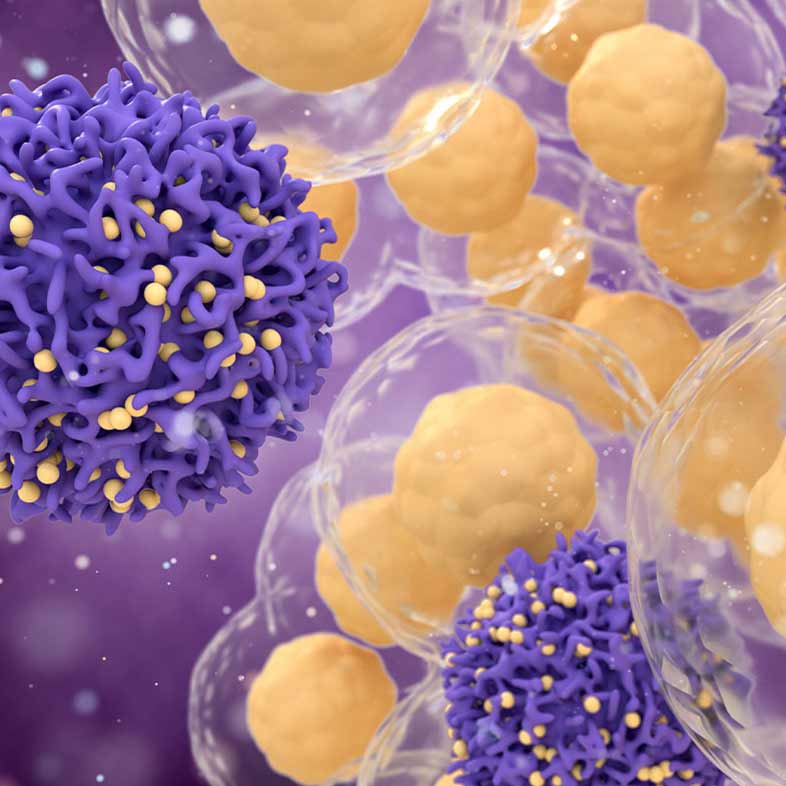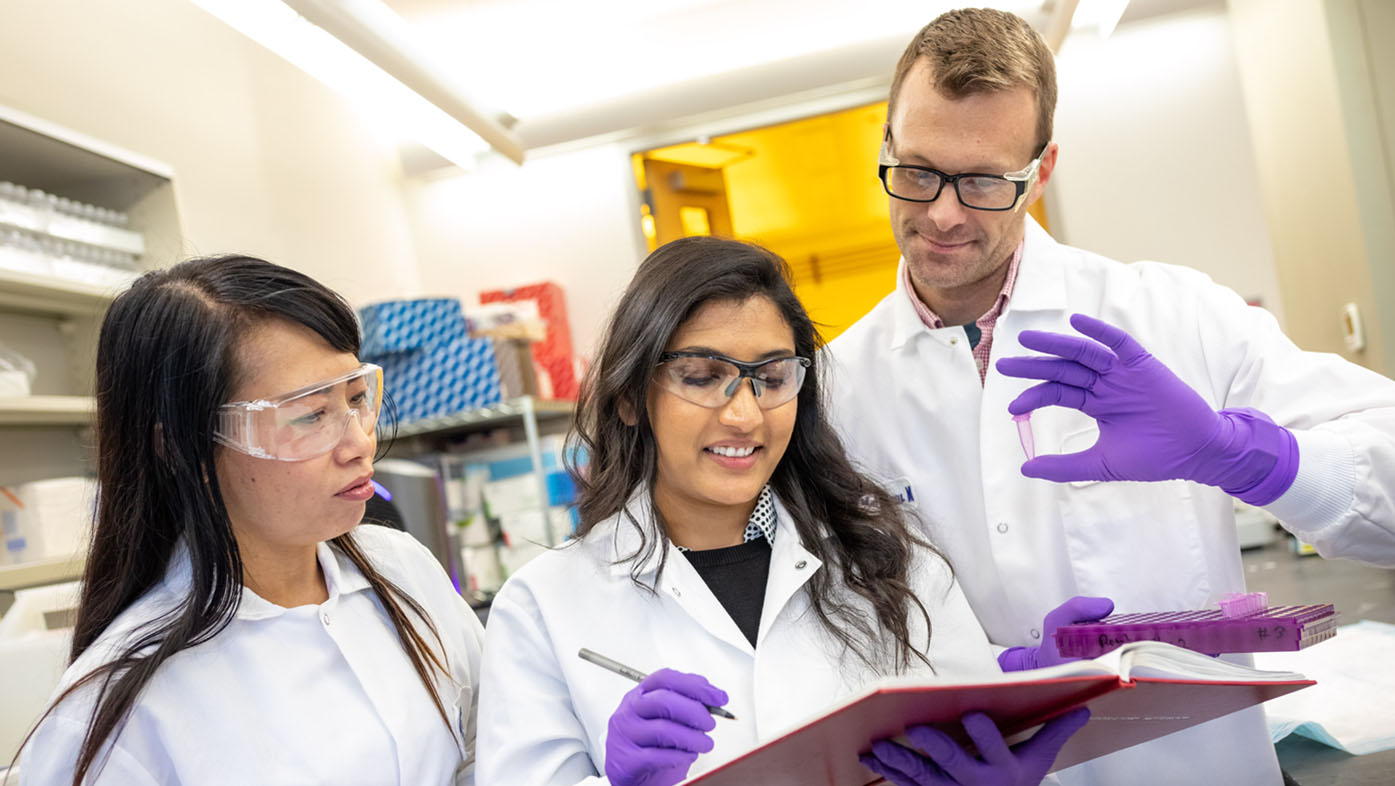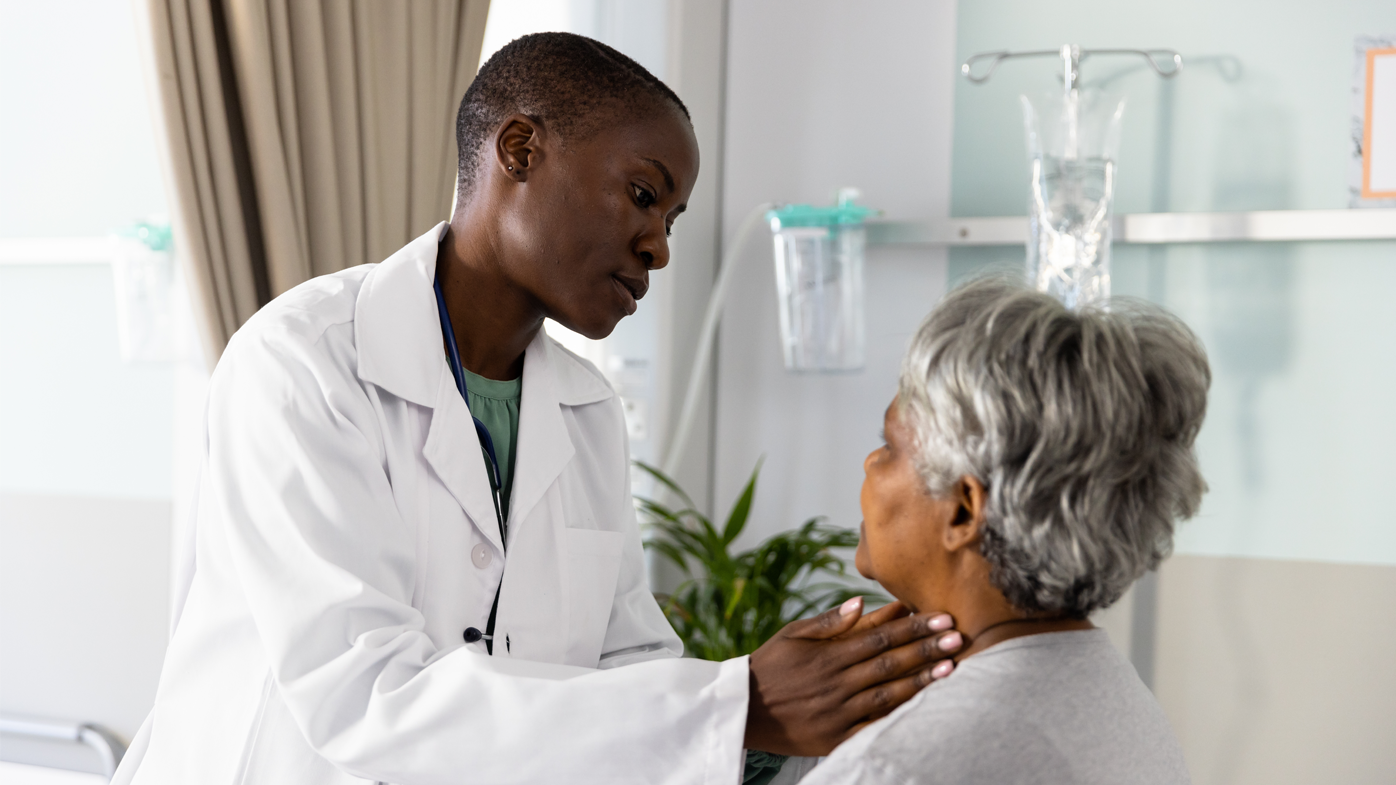Earlier treatment with immunotherapies: Building on our expertise in harnessing the immune system to combat cancer, we are working to expand the impact of our immunotherapies by investigating their efficacy when delivered earlier in the course of therapy, across various cancers. This approach may help prevent disease recurrence or progression and improve outcomes. Our leading development program has already seen this science translate into health authority approvals across several disease areas.
Addressing resistance and relapse: Understanding how cells become resistant to immunotherapy approaches has been a challenge. We are breaking down the complex biologic problem of resistance and working to better understand how cancer cells evolve and become insensitive to various treatment approaches. We are also researching bispecific monoclonal antibodies as another way of harnessing the immune system by simultaneously engaging antigens on immune cells and tumor-specific antigens, thereby facilitating recognition and elimination of cancer cells.
Targeted therapies: Understanding that cancer treatment is not one-size-fits-all, our team of translational medicine experts is focused on identifying biomarkers and taking a more targeted approach to healthcare. Sourcing internally and externally, we are building our portfolio of small molecules with the goal of more precisely targeting cancer’s vulnerabilities. For example, we are excited about the potential of precision medicine to help more patients with unique tumor biology and difficult-to-treat cancers.
Protein degradation: Targeted protein degradation is a process that harnesses the body’s natural ability to remove disease-causing proteins and help overcome treatment resistance. Building upon our deep expertise in this area, we are progressing next-generation methods of protein degradation – novel CELMoD™ agents (molecular glues) and ligand-directed degraders (LDDs) – from discovery to the clinic. Our Bristol Myers Squibb protein degradation research is helping us find ways to fight multiple myeloma with improved potency, selectivity, combinability and on-target activity. The program extends beyond multiple myeloma, with a next-wave asset being studied in phase 2 clinical trials for non-Hodgkin’s lymphomas and across other hematology and solid tumor oncology applications.
Cell therapy: Chimeric antigen receptor (CAR) T cell therapy, one of our core focus areas, has already driven significant improvement in outcomes for patients with hematologic malignancies. We are the only company that offers two approved cell therapies with two distinct targets across common types of blood cancer that greatly impact patients’ lives. We believe cell therapy has potential in solid tumors as well, and, as leaders in immunotherapy and in cell therapy, we are also researching next- generation cell therapies and are well positioned for that next leap of innovation. We are applying learnings from immunotherapy resistance in solid tumors and overcoming hostile tumor microenvironments to better guide next-generation strategies for this modality.
Where commitment meets community
Our goal at Bristol Myers Squibb is to offer every person with cancer a better, healthier life. That work features our development strategies, but also a reimagining of drug development that ensures all people are represented. We are relentless about eliminating barriers to achieve equitable outcomes for all. This includes putting an emphasis on programs that address health disparities, clinical trial diversity, supplier diversity, and workforce representation.
Diversity in clinical trials is a social and scientific imperative. We are committed to embedding more clinical trial sites in diverse communities to help enroll people into our clinical trials that are more reflective of broader patient populations and aligned with the epidemiology of the diseases we are studying.
Although there may never be a single therapy that cures all patients, with our collaborative mindset, patient-centric focus, and diverse approach to targeting cancer, we are well prepared to untangle cancer’s complexities and accelerate the discovery and development of the next wave of treatments.
That is the reason we come to work every day. Until we can offer every person with cancer a better, healthier life, our job is not done.




